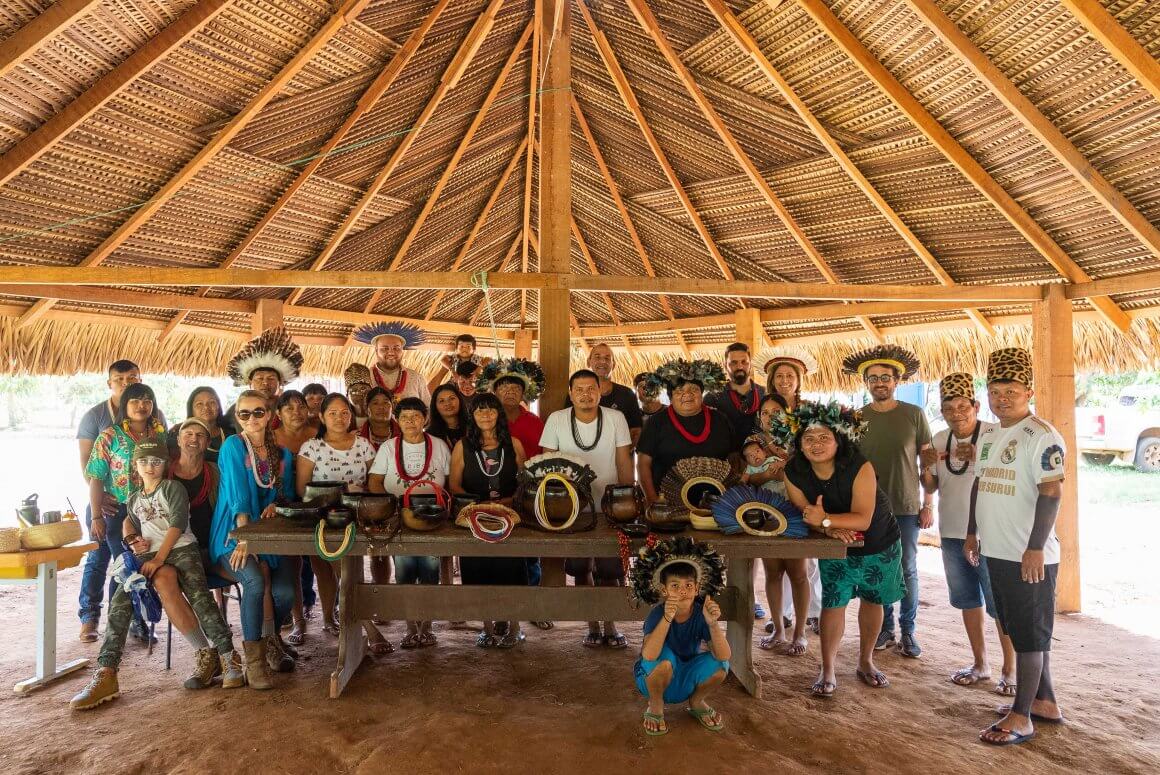H360 visits the Paiter Suruí indigenous people community in Cacoal, Rondônia
Humanitas360 and CIVI-CO staffs, a shared workspace for civic-social entrepreneurs founded by Patrícia and Ricardo Villela Marino, that also houses H360, made an immersion in the Paiter Surui indigenous people community in Cacoal, in the state of Rondônia. This visit is another step towards the process of approximation that began at the end of last year, when Chief Almir Suruí and his daughter, Txai Suruí, were at CIVI-CO after Txai’s outstanding participation in COP26, defending the indigenous population and warning about the climate emergency.
Patrícia Villela Marino stated that the visit was “fundamental for the pedagogical contextualization and the landing of the soul, restless with curiosity but also glad to know more about those who already know a lot, almost everything, about a wise,sovereign and balanced Brazil”.
At the meeting, H360 and CIVI-CO teams had conversations with Chief Almir Suruí and the entire community; visited the production of chestnuts, coffee and bananas and the reforestation areas close to the community where they admired the art of ceramic production, following millenary traditions, especially by the women of the community.
The trip also marks the beginning of an in-depth look at climate justice for a collective H360 project. Humanitas360’s president concludes: “To bring my home, my family and my staff to this experience of transformation, in a way uncomfortable and embarrassing, it detaches us from so many mistakes in which we were raised and kept for so many years. It is to yield to the reprogramming of patterns and parameters, in search of the truth that sets us free.”
Read Patrícia Villela Marino’s full statement about the visit:
“My family, Humanitas360 and CIVI-CO teams visit the September 7th indigenous reserve. Welcomed by Chief Almir Suruí in Cacoal, Rondônia. Upon arrival we were affectionately surprised by the presence of Chief Almir and his son Xeiner at the airport.
An important stop at the Suruí Indigenous People Metareliá Association. A fundamental visit for pedagogical contextualization and the landing of the soul, restless with curiosity but also glad to know more about those who already know a lot, almost everything, about a wise, sovereign and balanced Brazil in its origin and not overwhelmed by its history nor sordid for its actuality. There, before heading to the village, we learned about the history of struggle and resistance of the Suruí people, almost exterminated since contact with “civilization” and whose suffering and pain were not enough for their victimization. At the Association’s headquarters, we had the opportunity to undergo a historical review with photos, films, data and testimonies that incited us, all of us, to the racial and cultural literacy that is so necessary to make an ethical, non-negotiable commitment to climate justice. Bringing my home, my family and my staff to this experience of transformation, uncomfortable and embarrassing in a way, detaches us from so many mistakes in which we were raised and kept for so many years. It is to yield to a reprogramming of patterns and parameters in search of the truth that sets us free. Of the Truth that here there is scientific, human knowledge, ancestral heritage of indigenous peoples being decimated by petty and segregating productive systems.”

